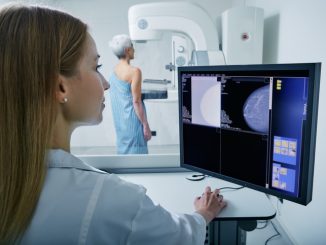
The Royal College of GPs Cymru Wales has launched an eight-point plan to revitalise how patients see GPs
Speaking at the launch, Dr Mair Hopkin, joint-chair of RCGP Cymru Wales said: “There are now more ways in which patients can see their GP or a member of the general practice team than was the case before the pandemic. This is to be welcomed. It is all about the patient accessing the most appropriate service at the right time.
“We also appreciate that with change, comes a concern that services may not be quite as patients recognise them. The aim of this eight-point plan is to set out a vision for how general practice can best respond to the needs of patients. This approach sees the individual patient at the centre of every decision.”
Recommendations
- Improve health literacy
The Choose Well campaign was a helpful tool in encouraging people to approach the most appropriate service at the right time. With urgent changes being introduced during the pandemic and associated lockdown, there is now a need to re-energise a campaign of health literacy among the population. Where it is appropriate for a patient to see a GP, we would like to see the route to do so have as few hurdles as possible, but equally we think it is important that the patient is empowered to make an informed choice as to which health professional or service is most appropriate for them to contact.
- Clarity of triage
People need to have confidence in the people they are talking to, and that requires a good understanding of the system. The first point of contact that a patient speaks to is a crucial gateway to the service they need and not, as is sometimes perceived, the gatekeeper. The term ‘receptionist’ does not always convey the experience with which these professionals are signposting patients to the most appropriate care for their needs. The inclusion of a Care Navigator role has proven a popular alternative model, and this could be upscaled. While there is a need for all practices to ensure a well-explained triage system so that the patient knows who they are talking to, why and what the output will be, it is also important for the Welsh Government and NHS Wales to provide clear messaging on the triage process.
- Minimum steps necessary
The process of triaging patients to the most appropriate service will involve some steps, but these should be simple to navigate with a clear, concise explanation. It must be remembered that the process must be accessible to those with communication difficulties, mental health conditions and those whose first language is not English or Welsh. Some conditions can quickly be identified as requiring a face-to-face consultation without further triage; the process should seek to identify these in a timely fashion.
- More ways to see the GP
We welcome the fact that the Welsh Government has not indicated that either face-to-face or remote consultation should be treated as the default. Both formats offer benefits, and we should welcome that there are now more ways for the patient and GP to engage than was the case prior to the pandemic. Some patients with mental health conditions positively favoured the remote consultation option, and, this also has the wider benefit of added convenience for any patient. The traditional face-to-face consultation must always remain an option as it will be most appropriate for some patients and essential for certain conditions. The people best able to decide on what is the best form of consultation are the GP, their team and the patient on a case-by-case basis. This bottom-up approach will drive a more patient-centric primary care than would be possible with a top-down prioritisation protocol.
- Online appointment booking
The lack of consistent availability of online appointment booking across Wales is leading to anachronistic procedures that are forcing unwell patients the stress of navigating the system or competing with other patients for an appointment when phones lines open each day. When so much can be achieved at the click of a button, it is reasonable for any patient in Wales to be able to book an appointment online. In doing so, they can also provide key information to allow efficient triage to the most appropriate clinician in the team. Online booking will, in turn, reduce the volume of telephone calls freeing up that service for those who prefer to communicate by phone. Welsh Government should support practices with the costs and infrastructure of providing online booking.
- Increase scope of online video consultation
While the term ‘remote’ relates to both telephone and online consultation, the former is dominant in Wales at present. A video remote consultation will offer the closest to face-to-face option in terms of the patient and GP interaction while still providing the convenience benefits. We believe that both telephone and remote video options should be available.
- Sufficient surgery space
An existing issue of insufficient surgery capacity to appropriately accommodate multi-disciplinary team working and trainee GPs was exacerbated during the pandemic by the need to account for social distancing. The original problem has not gone away but it is also now appropriate to risk assess should further measures need to be taken to ensure the safe spacing of patients and staff in a well-ventilated surgery.
- Teamwork
Patients should not need to provide the same information repeatedly. Good team communication is required to ensure consistent and sensitive continuity of care for patients. In turn, it is important that it is explained to patients why the member of the multi-disciplinary team they are seeing is the most appropriate point of contact for them. Patients tend to prefer test results and advice from a health care professional rather than an administrator and this should be the standard procedure unless there are specific mitigating circumstances.
Joint-chair of RCGP Cymru Wales, professor Peter Saul said: “This plan, which we are sharing with Welsh government, presents a good path forward for patients and general practice teams. However, it must be emphasised that the only sustainable solution to the challenge of timely access for patients to general practice is investment in a significantly enlarged general practice workforce today and in training for the future.”
This paper is directly focussed on Wales, but it builds upon and seeks to complement the framework established by ‘The future role of remote consultations & patient ‘triage’’ which was published by RCGP earlier this year.



Be the first to comment